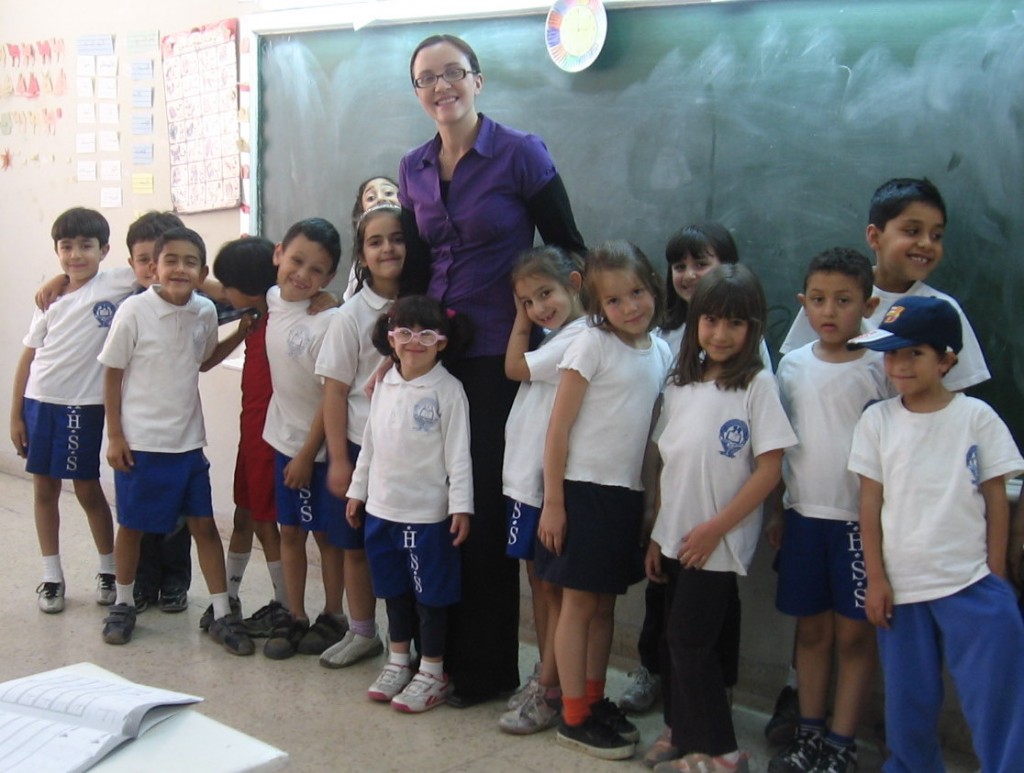Since I completed my Fulbright Program, I have often been asked a variety of questions about my time living as a Fulbright English Teaching Assistant (ETA) in Amman, Jordan. I find that people are curious about everyday life in other societies and, given recent events, particularly in the Middle East. From September 2009 until June 2010, I experienced Jordanian culture and had multiple opportunities to share my story. Everyone asks, “What was that like?” or “How was that?” with wide eyes.
Here are a few of my answers and tips for applicants…
Being a Fulbright U.S. Student Program grantee helped me to become a more adaptable person both personally and professionally. At one point, I thought that my Fulbright story was unusual because I originally applied for a Fulbright ETA grant in Egypt and ended up in Jordan. The Egyptian Fulbright ETA Program was a better fit for my experience and skills but was canceled very late in the selection process. A few of the Egypt ETAs, including myself, therefore, were diverted to Jordan. Despite the long wait and transition, being placed in Jordan was great because it allowed me to reconnect with friends and professional contacts that I had made during my participation in the 2008 Critical Language Scholarship Summer Language Institute in Amman.
Talking to other Fulbrighters, I’ve come to realize that there is no typical path toward becoming a grantee. Some applicants end up applying multiple times before being selected, some receive grants after being named alternates, and still others, like me, end up going to locations not mentioned in their applications. Flexibility, persistence, and a sense of adventure are important when applying.
The Fulbright ETA Program offers an exciting opportunity to become a part of a community in a new country and share experiences. At the Abdul Hamid Sharaf K-12 School, where I was placed, I worked side-by-side with a mix of Jordanian and expatriate teachers and assistant-taught students from a variety of countries. I loved being able to share stories about my life in the United States and learning about the lives of my friends and students. We talked about food, clothing, religion, politics, celebrities, cultural quirks, and so many other things. I can honestly say that our similarities and differences helped to foster rich and lasting relationships. Sharing your story and listening to others’ are big parts of being a successful Fulbright participant.
My time working on what I like to call my ‘unofficial program’ was equally as important as the time spent on my ‘official program.’ My ‘official program’ included teaching at my assigned school and studying conversational Arabic. This is what the Statement of Grant Purpose in a Fulbright application covers. Conversely, my ‘unofficial,’ but equally important, program included volunteering to teach English to Iraqi refugees, building meaningful friendships with people from other cultures, and using my skills in other ways to help my local host community. You may not know what effect your ‘unofficial program’ will ultimately have, but this investment can make a tremendous difference in the lives of others long after you’ve left your host country. A Fulbright U.S. Student Program experience can and, in my opinion, should be enriched by making giving back to your host community a priority.
From these answers, I offer the following pieces of advice to prospective applicants:
- Flexibility, persistence, and a sense of adventure are all important applicant qualities.
- Preparing to share your story should begin as early as the application process (remember, your story makes you unique as an applicant).
- Spend time thinking about your ‘unofficial program’ and how you can give back to your host country.
- Take time to enjoy the process…good luck!
Emily Hagemeister (center), 2009-2010, Jordan, posing with her first graders at the Abdul Hamid Sharaf School in Amman, Jordan.
Questions for Emily about her Fulbright experiences? Feel free to email her at EHagemeister.AlumniAmbassador@fulbrightmail.org.


 This week, the newly selected 2011 Fulbright U.S. Student Program Alumni Ambassadors will meet in Washington, DC to receive training and tips on how they can help promote and recruit for the
This week, the newly selected 2011 Fulbright U.S. Student Program Alumni Ambassadors will meet in Washington, DC to receive training and tips on how they can help promote and recruit for the  On September 2, 2009, I arrived in
On September 2, 2009, I arrived in